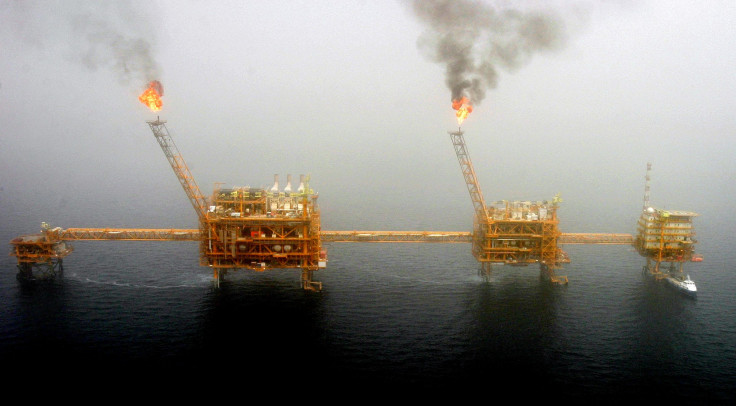Oil Prices 2016: How Are Oil Prices Affecting The Economy In The Middle East? IMF Revises Growth Forecasts For Saudi Arabia, Iran

The International Monetary Fund (IMF) highlighted Saudi Arabia’s economic turmoil, due in large part to a drop in oil prices over the past two years, when it cut its 2016 growth forecast for the country on Wednesday.
The country’s non-oil sector, projected in May to grow at 1.6 percent, more likely “just breaks even” this year with a growth rate of 0.3 percent, IMF Middle East regional director Masood Ahmed told the Associated Press on Wednesday. Its overall gross domestic product (GDP) growth for 2016 would hit just 1.2 percent, the lowest expansion in eight years, according to the IMF.
With crude prices more than halving from the summer of 2014 to that of 2016, the Gulf state, where nearly 39 percent of GDP stems from oil production, is becoming increasingly reliant on other sectors.
In its regional outlook report for the Middle East and Central Asia, released Wednesday, the IMF projected dismal growth for many of Saudi Arabia’s peers in the Gulf Cooperation Council (GCC), a group of six oil-exporting nations headquartered in Saudi’s capital, Riyadh.
“The GCC’s non-oil growth is projected to halve from 5.5 percent in 2014 to 1.75 percent this year,” the report said, adding that Saudi Arabia’s growth outside of the oil sector has been lower than the previous year’s for two consecutive quarters.
Still, the IMF predicted that the GCC would adjust to the decline in price of oil by next year, with non-oil sector growth rising to 3 percent. But the forecast was still far below the 2000-2014 average of 7 percent.
"Some countries—Saudi Arabia, Bahrain and Oman—start from a position where they have to make more of an adjustment to be able to balance their budget in five years," Ahmed told the AP. "They all do have policies that they're articulating that will help them get there, but they will entail difficult choices."
Projections for Iran—another major oil producer and, like Saudi Arabia, a member of the Organization of Petroleum Exporting Countries (OPEC)—were more positive, according to Ahmed. The IMF revised the Islamic Republic’s GDP growth up to 4.5 percent, according to Ahmed. He attributed the nation’s growth to an oil production boost following relief from Western sanctions, but expressed doubt that the country could maintain such GDP growth rate levels.
"The big challenge for Iran is can you sustain that 4, 5 percent growth over the medium term or is it just a one-time increase you get?" he told the AP. "They can, but they have to move on addressing some of the other constraints in their economy."
© Copyright IBTimes 2024. All rights reserved.






















